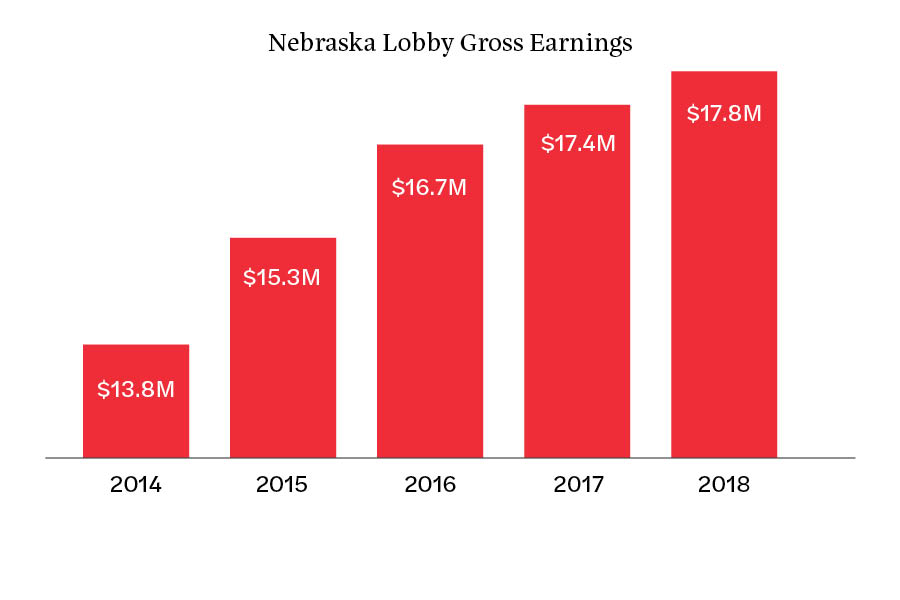Report
Breaking Records: Wealthy Special Interests Spend Most Ever
For eight years, Common Cause Nebraska has compiled lobbyists’ expenses to document the growing wealth of
the lobby and advance reforms to curb the influence of special interest money in politics. This report highlights how Nebraskans have become accepting of lobbyists wining, dining and entertaining their way to access, despite how it puts the average citizen at a disadvantage.
the lobby and advance reforms to curb the influence of special interest money in politics. This report highlights how Nebraskans have become accepting of lobbyists wining, dining and entertaining their way to access, despite how it puts the average citizen at a disadvantage.

A little perspective may be helpful when considering the growing influence of the lobby. In 2000, Nebraska began reporting statistics online. In that year, the lobby collectively reported gross earnings at $2,653,548. By 2005, earnings had grown to $10,730,586. This dramatic increase seemed to level off, and by 2010 the report showed $11,888,888. After that year, a steady growth in earnings led to $15,334,105 in 2015 and amounted to $17,807,017 in 2018. The growth has stayed well ahead of inflation and has left government salaries in the dust.
It is true that the growth in earnings is partially explained by growth in the number of individual lobbyists and lobbying firms. This growth, however, would not have taken place if the demand was not there. It has become generally accepted that if you want something done at the capitol, you should hire a lobbyist.
With the Unicameral dealing with as many as 1,000 bills in a two-year session, individuals and organizations often engage paid professionals who are at the capitol daily to gain an advantage in advancing their agendas. But that advantage takes money, and those who have the money expect to have better access and influence — and there’s “the rub.”
Over the years Nebraskans have become accepting of lobbyists wining, dining and entertaining their way to access. It has even become an accepted practice for lobbyists to become key players in campaign fundraising.
All of this creates an insider game that puts the average citizen at a disadvantage. The importance of a small donor giving $20 donation has given way to those able to make a $5,000 contribution.
It is true that the growth in earnings is partially explained by growth in the number of individual lobbyists and lobbying firms. This growth, however, would not have taken place if the demand was not there. It has become generally accepted that if you want something done at the capitol, you should hire a lobbyist.
With the Unicameral dealing with as many as 1,000 bills in a two-year session, individuals and organizations often engage paid professionals who are at the capitol daily to gain an advantage in advancing their agendas. But that advantage takes money, and those who have the money expect to have better access and influence — and there’s “the rub.”
Over the years Nebraskans have become accepting of lobbyists wining, dining and entertaining their way to access. It has even become an accepted practice for lobbyists to become key players in campaign fundraising.
All of this creates an insider game that puts the average citizen at a disadvantage. The importance of a small donor giving $20 donation has given way to those able to make a $5,000 contribution.
